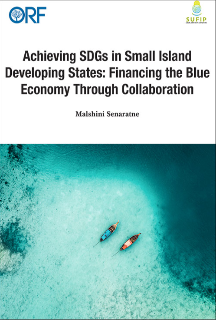Iraq's Prime Minister Nouri Al-Maliki led a landmark cabinet meeting in the country's Kurdish region, in an effort to diffuse tensions between Kurds and the central government, a dispute that is the biggest threat to Iraq's stability.

< class="text1" align="justify">
Iraq
Iraq's Prime Minister Nouri Al-Maliki led a landmark cabinet meeting in the country's Kurdish region, in an effort to diffuse tensions between Kurds and the central government, a dispute that is the biggest threat to Iraq's stability.
Baghdad and Erbil, deadlocked for years, lay claim to a 'tract of land stretching from Iraq's eastern border with Iran to its western frontier with Syria, and they also disagree over the apportioning of oil revenues and the signing of contracts with foreign energy firms'.
Member of Parliament Omar al-Jabouri has expressed concern that Mr. Maliki's visit to Erbil may result in deals for 'achieving personal and partisan gains' that could threaten the country's unity. This threat is heightened because the Kurdistan region seeks to incorporate Kirkuk and large parts of Nineveh, Diyala, and Salah il-Din provinces within Kurdistan.
The central government believes that it should manage the country's oil policy and is therefore, opposed to Kurdish deals on oil exploration and pipelines that ship oil produced in their region but are not state-run.
The meeting between Al-Maliki and Kurdish regional President Massud Barzani comes just days after the interior ministry in Baghdad issued a strongly-worded statement calling for Kurdish forces to withdraw from disputed territory, threatening a fragile peace between the two sides' militaries
< class="text11verdana">Source: Iraqi News, June 10, 2013; Al Jazeera, June 10, 2013
Egypt
< class="heading12boldGeorgia">Egypt-Ethiopia row over Nile dam
Ethiopia is diverting the flow of the Blue Nile River to construct a USD 4.7 billion hydroelectric dam that will fulfil its energy needs. The Blue Nile is one of the major tributaries of the Nile River and 84 per cent of the water from world's longest river originates in Ethiopia.
According to Mohamed Edrees, the Egyptian Ambassador to Ethiopia, 'The main issue and the essence of the matter is the impact of the dam itself and not of this step of diverting the course of water'. He also said that the diversion is a step in the construction of the dam, and will not affect either Egypt or Sudan in the amount of water because of an alternative by-pass route. However, the Egyptian government's position has changed considerably over the last week. The report of the Tripartite Nile Basin Committee, consisting of experts from Egypt, Sudan and Ethiopia, was meant to determine the effects of the Great Ethiopian Renaissance Dam on Egypt and Sudan. The findings of the long awaited report were, however, considered inconclusive.
Egyptian President Mohammad Morsi has claimed that the dam could endanger Egypt's water supply and that 'all options are open' to deal with this threat. The Ethiopian government has rejected all demands from Cairo to halt the construction of the dam.
Egypt's foreign Minister, Mohamed Kamel Amr, said he would travel to Addis Ababa to deal with the crisis but would not 'give up a single drop of water from the Nile or any part of what arrives into Egypt from this water in terms of quantity and quality'. He also said that Egypt will take note of Ethiopia's assurances that the hydro station would not cut Egypt's water supply before taking any action.
The dam will eventually have capacity of 6,000 megawatts and is central to Ethiopia's plans to become Africa's leading exporter of power.
Sudan, which borders Egypt and Ethiopia and also gets much of its water from the Nile, said it supported the project because the dam will enable Ethiopia to export power to Sudan.
< class="text11verdana">Source: Ahram Online, June 10, 2013; June 6, 2013; Al Jazeera, May 29, 2013
Iran
< class="heading12boldGeorgia">Six candidates left in Presidential election fray
Hassan Rohani is elected as the final candidate of the reformists and moderate Principlists for the upcoming Presidential elections. The head of the reformist movement, former President Mohammad Khatami has supported this decision as he asked reformist candidate Mohammad Reza Aref to drop out of the race. Following the decision, Mr Reza said, 'In consideration of Mr Khatami's explicit opinion, and the experiences of two past presidential elections, I declare my withdrawal from the election campaign'. The two reformist candidates from 2009 Presidential elections - Mir Hossein Mousavi and Mehdi Karroubi - remain under house arrest.
The move is seen as an attempt to bolster the reformist vote in favour or Hassan Rohani. Mr Rohani was giving the official backing through a 10-person advisory council meeting arranged by Mr Khatami. Mr Rohani is a former nuclear negotiator and enjoys high popularity.
The Presidential candidates have whittled to six after the two drop-outs including that of former Majlis speaker Gholam Ali Haddad-Adel. The Principlist politician announced his decision to drop out of the election in a statement, in which he 'urged the Iranian people to vote for the candidates who support the "discourse of the Islamic Revolution" and the values approved by the Supreme Leader and cast their ballots taking into consideration the Leader's guidelines'.
He also said that his decision demonstrated adherence to the Coalition of Three, which consisted of Principlist candidates Haddad-Adel, Ali Akbar Velayati, and Mohammad Baqer Qalibaf.
'Most of the six remaining candidates in the poll are conservatives close to Supreme Leader Ayatollah Ali Khamenei'.
In other news, election front-runner Saeed Jalili has said that Iran reserves the right to its programme for developing nuclear energy for peaceful purposes. He reiterated that Iran will not relinquish these rights and the pressure and sanctions only emphasise how valuable this programme is for the country.
< class="text11verdana">Source: Tehran Times, June 10, 2013; June 9, 2013
Sudan
< class="heading12boldGeorgia">Sudan, South Sudan lock horns over oil
Sudanese President Omar Hassan Al-Bashir has ordered the closure of all pipelines carrying oil from South Sudan. He said that the decision was in response to Juba's funding of rebels fighting his government. His announcement came in response to allegations that South Sudan supports the Sudan Revolutionary Front Rebels (SRF) fighting Khartoum on various fronts. Sudan also put on hold nine security and economic pacts with South Sudan including vital oil shipments but pledged a resumption of good relations if Juba ended its support of the rebels. Juba has denied these allegations.
Sudan's National Assembly has supported President Bashir's decision but opposition leaders have claimed 'that the decision means recreating the crisis that takes relations between the two countries back to hostility, but the root solution lies in negotiating with the rebels'.
South Sudanese President Kiir has expressed disappointment in the credibility of the African Union (AU) saying that the continental body has failed to assume leadership in resolving the row. In September last year, Sudan and South Sudan signed a series of cooperation agreements, which covered oil, citizenship rights, security issues, banking, and border trade, among others. On 25 January, at the AU Peace and Security Council (PSC), convening during the AU Summit in Addis Ababa, adopted a communiqué on Sudan-South Sudan, which among others, stressed the need for the two countries to unconditionally implement the 27 September 2012 agreements.
Following the announcement, President Kiir has vowed not to take the country back to war and instead continues to pump oil to Sudan. Moreover, the government in Juba claims that they have not received any official communication from Khartoum on this matter.
< class="text11verdana">Source: Sudan Tribune, June 10, 2013, June 11, 2013; Al Jazeera, June 10, 2013
Tunisia -Libya
< class="heading12boldGeorgia">Tunisia and Libya explore avenues for energy cooperation
Tunisian Minister of Industry, Mahdi Jumaa is on a two-day visit to Tripoli to discuss energy cooperation between the two countries. The visit is aimed at updating energy projects signed between both countries in the past and also to follow up on joint companies established by them. Plans to build a gas pipeline from the gas complex at Mellitah, west of Zawia, to the Tunisian city of Gabes are also on the agenda of talks between Libyan Minister of Oil and Gas, Abdulbari Al-Arusi and Mr Jumaa.
Libya last year agreed to provide Tunisia with crude oil as well as oil products and two months ago both men inked a deal in Tunis setting up a joint committee to oversee the transfer. They had also discussed potential Libyan involvement in the proposed $2-billion Skhira refinery and the possibility of joint projects exploiting border region hydrocarbon reserves.
Mr Arusi has said that the aim of the current visit is to discuss activating the agreement on supplying Tunisia with oil. Cooperation in oil refining is one of the subjects on the two ministers' agenda. An electricity sharing project is also expected to be on the two minsters' agenda during the current visit.
Mr Jumaa has said that he is determined to set up a gas treatment complex, Gaz du Sud, in the south of Tunisia based in Tataouine. A Mellitah-Gabes pipeline would pass from near Tataouine.
There is already a pipeline from Mellitah to Italy.
(This monitor is prepared by Kanchi Gupta, Junior Fellow, Observer Research Foundation, Delhi)
The views expressed above belong to the author(s). ORF research and analyses now available on Telegram! Click here to access our curated content — blogs, longforms and interviews.




 PREV
PREV

